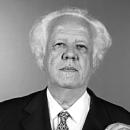
Oklahoma execution reaches Pennsylvania
MÁS EN ESTA SECCIÓN
Just 24 hours after Governor Tom Corbett signed an execution warrant for convicted Philadelphia murderer John Lewis, a botched lethal injection in Oklahoma amplified criticisms of state-administered executions, putting scheduled death-dates on hold across the country.
Too many innocent people have been executed. It's time the death penalty was abolished worldwide http://t.co/aVBCHgQTVG
— Richard Branson (@richardbranson) April 30, 2014
I don't believe in death penalty but raping and murdering an 11month old I could almost put the needle in the arm myself #OklahomaExecution
— Kaylove (@KMS528) May 1, 2014
Clayton Lockett was due to die on Tuesday, but the state's lethal cocktail was not as effective as anticipated. According to media reports, Lockett groaned and writhed for several minutes, eventually dying of a heart attack more than a half hour after injection. Lockett was sentenced to death for killing 19-year-old Stephanie Neiman in 1999. Injection was postponed for another death row inmate scheduled to die less than an hour after Lockett in the same prison.
In Pennsylvania, if Lewis is executed on the scheduled June 18 date, it would be the first time the death penalty was enforced in 15 years. Lewis was convicted murder in 2009, two years after a 2007 Dunkin' Donuts robbery ended with the death of Philadelphia police officer Chuck Cassidy. His execution may likely be appealed and the date changed, especially in light of recent events.
After the European Union and many U.S. drug companies concerned with bad publicity instituted strict embargoes and sale bans on drugs being used in lethal injections, states have struggled to find replacements, often testing new mixtures for the first time on death row inmates. Critics argue that extensive suffering runs counter to the eighth amendment, which outlaws cruel and unusual punishments.
While the majority of Americans still favor the death penalty, opposition is growing. A Pew survey from last year found that since 2011, opposition has grown from 31 percent to 37 percent while support has dropped from 62 percent to 55 percent of U.S. adults surveyed. Opinions are also divided across racial, ethnic, religious and political lines as well as age. Half of Latino respondents in the survey said that they opposed the death penalty, compared to 30 percent of white respondents.






DEJE UN COMENTARIO:
¡Únete a la discusión! Deja un comentario.